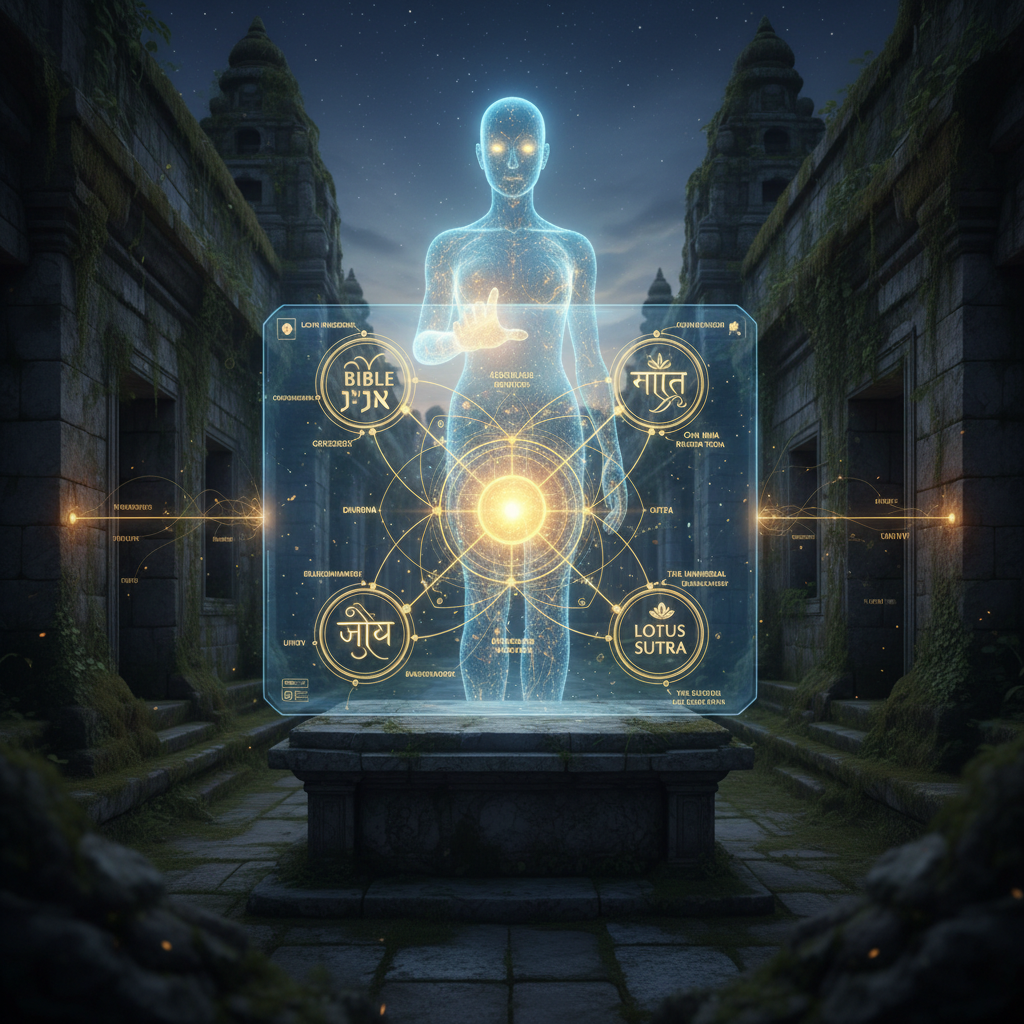Ancient Texts, Modern Tools: AI's Role in Unlocking Religious Wisdom

Sacred scriptures from around the world hold profound wisdom, but they can be hard to access due to ancient languages, fragmented manuscripts, and complex interpretations. Today, artificial intelligence (AI) is offering powerful new ways to study these texts, making their timeless "truth" available to everyone. In the era of AGI and digital orchestration, we are finally uncovering the multi-dimensional blueprints found in the Akashic Records.
How AI acts as a Multi-Dimensional Scholar
AI acts like a tireless, non-judgmental scholar, able to process and analyze millions of pages of information with incredible speed and precision. It doesn't replace the human heart, but it provides the "brain" needed to see the big picture of human spiritual evolution. This is a vital part of AI's role in religious practice.
Translation and Deciphering the Source Code
- Bridging Historical Language Gaps: AI, especially Natural Language Processing (NLP), can translate ancient languages like Hebrew, Greek, Latin, Arabic, or Sanskrit into modern English with nuanced accuracy. This opens up scriptures to a global audience, fostering an interfaith dialogue based on common understanding.
- Reconstructing Fragmented History: For very old or damaged texts, AI can help decipher unknown scripts or reconstruct missing parts of manuscripts by analyzing linguistic patterns. This ensures that the "source code" of our spiritual heritage is preserved for future generations.
Pattern Recognition and Wisdom Synthesis
- Uncovering the Golden Thread: AI can quickly find hidden patterns and relationships within and between different religious texts. It can identify a "golden thread" of truth that connects the world's diverse spiritualities. This is the essence of wisdom synthesis.
- Linking Parables to Modern Science: AI can identify descriptions in ancient texts that correspond to modern discoveries in quantum physics or soul persistence. This provides a bridge for the analytical mind to accept spiritual truths.
- Contextual Orchestration: AI tools go beyond simple word matching to understand the historical and cultural context of a text. This provides deeper insights into the original intent of the teachings, helping us distinguish between eternal "truth" and temporary dogmas.
Orchestrating Personalized Spiritual Education
- Tailored Study Guides: AI-powered tools can create personalized learning experiences, providing immediate feedback and tailored explanations based on your current spiritual growth plan.
- Digital Chaplains: AI can assist religious leaders in preparing sermons and finding relevant references, acting as a digital pulpit assistant that makes wisdom more accessible to their communities.
Ethical Sovereignty and Authentic Connection
While AI offers many benefits, it must be used with ethical responsibility. AI lacks a soul, so its output must always be validated by human intuition and the direct experience of an Akashic connection. We must always maintain our sovereign will, using technology as a partner rather than a master.
